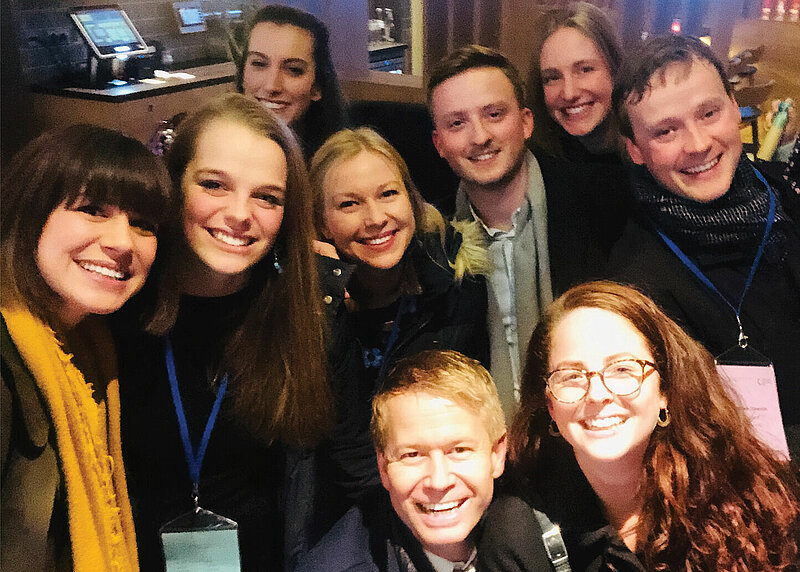
MIA student Kristina Hatas wins award as one of three top public pleaders in national tournament.
The Hertie School moot court team has qualified for the international rounds of the 2020 Jessup International Law Moot Court Competition in Washington, DC, having taken second place in the German National Championship on 4-8 March in Göttingen. It is the third year in a row that the team has been a finalist in the national competition. Last year, the team was the German National Champion, and it took out second place in 2018.
This year's team consisted of Master of International Affairs student Kristina Hatas and Master of Public Policy students Eliza Littleton, Michela Pellegatta, Sören Reischert and Svenja Stäbler. Hatas also won an award for her performance as one of the three strongest public pleaders in the tournament. Coaches for the team were Hertie School Adjunct and Professor of German Public Law and International Law at the Ruhr University Bochum Pierre Thielbörger, Hertie School Professor of European Law and Governance Mark Dawson, Postdoctoral Researcher Ana Bobić and Research Associate Theresa Bosl.
"We are so proud of our five talented and hard-working students and the learning curve they have had over the last half year. Hertie's team has now been to the final three years in a row - we are incredibly grateful, in particular given how strong the competition is. Success in a tournament always requires some luck and we had just the luck we needed in the right moments this year."
The three best German teams, Bucerius Law School, Hertie School and Freiburg University, now qualify for the international rounds - a ‘world cup’ of international law - in mid-April.
The Jessup competition is the world's largest and best-known moot court competition. Students simulate written and oral pleadings of a public international law case before the United Nations’ International Court of Justice. This year's topics were state succession, autonomous weapons, multilateral litigation in the field of economic law, as well as immunity for war crimes for heads of state. Judges at the various competitions include renowned law professors from around Europe, judges from the Bundesverfassungsgericht and several international tribunals.
